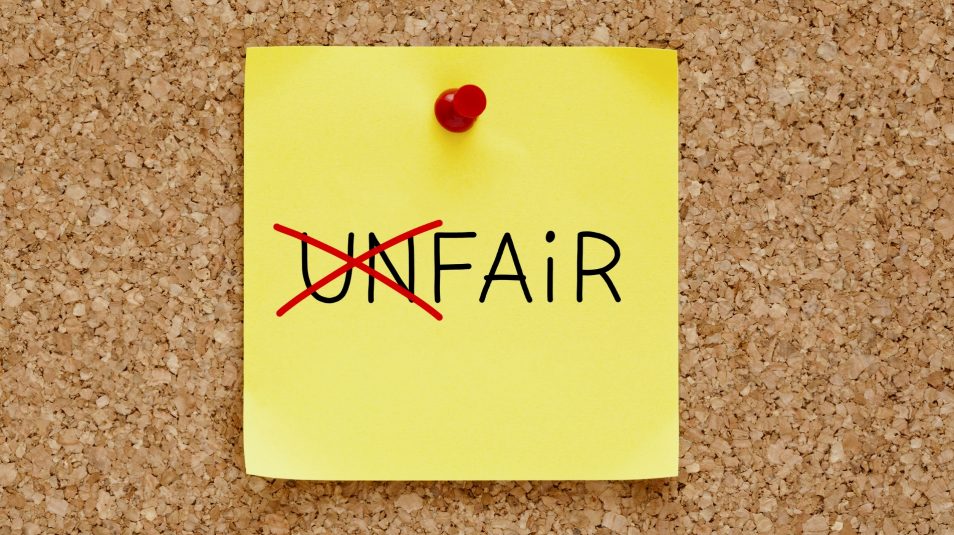The Mistake We Make When Trying To Be Fair

Leadership
May 31, 2019
Randy Conley
Topics
employee retention, Fairness, justice, procedural justiceI coached youth baseball for over 15 years, from 5-year-old kids to 14-year-old teenagers, and at least two things were common across all the age groups: 1) the kids always kept score, and 2) they were the first ones to remind me if I wasn’t being fair.
Whether I was coaching a bunch of energetic 5-year-old kids in tee-ball where we didn’t keep an official score of the game, or with older kids playing a practice game against one another or an opposing team, the kids always kept score of who was winning and losing. And if I made a coaching decision that an individual player or the whole team didn’t like, one of their first complaints was, “That’s not fair!”
Switch the scene to the modern-day workplace. I’m a leader working with mature adults, yet I’ve found that not much is different from coaching kids in baseball. People still keep score, only now it’s about who received the new project, promotion, or corner office. And as soon as someone perceives I made an unjust decision, the first thing I hear is exactly what 5-year-old tee-ballers said: “That’s not fair!”
Leaders aiming to build trust in relationships need to pay attention to the issue of fairness. “No problem,” you may say, “I treat everyone the same, no matter what.”
Actually, treating everyone the same is the biggest and most frequent mistake leaders make when trying to be fair.
A quote from Aristotle speaks to this: “There is nothing so unequal as the equal treatment of unequals.” People should be treated equitably and ethically, given their individual needs and circumstances, and the differences between people should be recognized and valued, not diminished.
To build and maintain trust with followers, leaders need to exhibit fairness through the distribution of organizational resources and application of policies to all team members. It’s helpful to understand exactly what “fairness” means in an organizational context. Fairness is composed of two main elements: distributive justice and procedural justice. Distributive justice is fairness in the organization’s pay, rewards, and benefits for employees. Procedural justice is fairness in the organization’s decision-making processes in how those rewards and benefits are doled out. Of the two, procedural justice is the element most under control of individual leaders and is the aspect of fairness most closely linked with building or eroding trust with followers.
Based on research from The Ken Blanchard Companies, procedural justice was ranked as the most important organizational factor for employee retention. Additionally, over 60% of respondents believed the primary responsibility for influencing and improving procedural justice rested with their immediate supervisor.
So how can leaders be fair and build trust with their team members?
Here’s a few suggestions:
- Be transparent – Share information about the criteria and process that you use to make decisions. Putting all your cards on the table eliminates doubt and mistrust.
- Increase involvement in decision-making – As much as possible, involve the people who will be affected by your decisions in the process. People who plan the battle rarely battle the plan.
- Play by the rules – Clearly establish the rules, play by them, and hold others and yourself accountable to following them.
- Listen with the idea of being influenced – Don’t make the mistake of thinking that you know it all. Ask others for their input and genuinely listen with an open mind and be willing to change course if needed.
- Don’t play favorites – No one likes a teacher’s pet, so don’t create one. That will eliminate a key source of jealousy.
- Save spin for the gym, not the office – Be authentic and genuine in your communications. People see through the political spin.
Remember, people are keeping score of your every behavior. Broad-brushing everyone with the “same” treatment is the easy and lazy approach to being fair. Treating people equitably and ethically, given their unique circumstances, will help them see you are being a fair and consistent leader.





